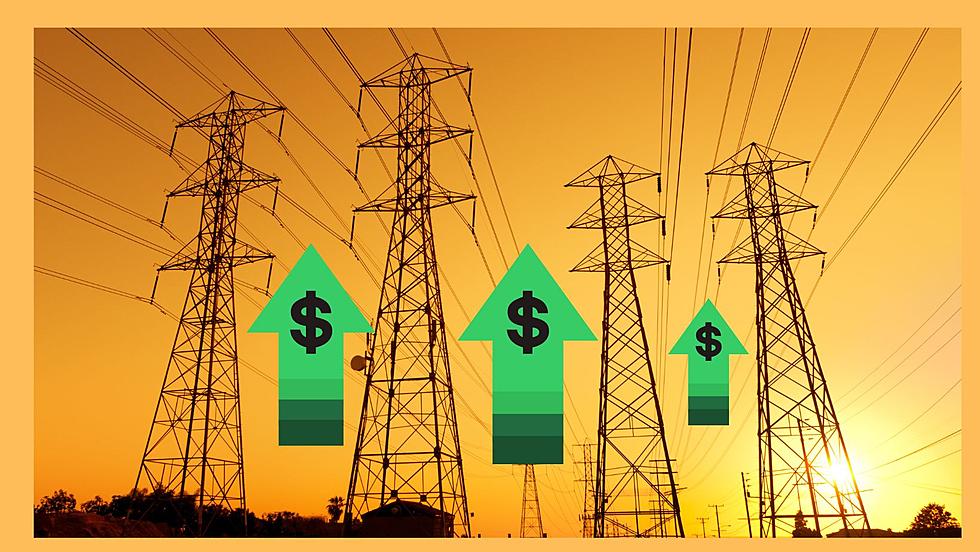
NJ utility grace period is ending — will your service be cut off?
Utility companies in New Jersey have the green light to turn off your gas, electric or water in the new year for nonpayment, when a coronavirus moratorium's grace period officially runs out. But chances are you'll get at least one more lifeline before your providers officially flip the switch.
For months, state officials — and utility companies themselves — have been urging New Jersey residents who are behind to either pay what's owed, apply for assistance, or arrange a payment plan with their utilities by Dec. 31, so there's no risk of losing service.
"With expanded income eligibility for some programs, you may be eligible for assistance even if you thought you were not," Gov. Phil Murphy said during his latest coronavirus briefing with reporters.
Check here for information from the Board of Public Utilities on utility assistance programs for which you may be eligible.
As of October 2021, more than 4000,000 residential customers were five to six months behind on gas and/or electric payments, representing an arrearage total of more than $396 million, according to the BPU. Water and sewer utilities recorded 168,390 overdue accounts in October 2021, owing more than $46 million.
The BPU site notes that utility companies will resume shut off of service for nonpayment after Dec. 31. However, utilities in New Jersey, per an executive order issued in June, need to take a couple steps before pulling the plug.
After a required notice of discontinuance is sent to a customer, the EO notes, the service provider must offer to enroll the customer in an interest-free payment plan that runs for at 12 least months.
And while it's not required, the EO notes service providers could offer even more flexibility to customers by forgiving a portion of the outstanding principal.
"We continue to monitor the moratorium, and as it sunsets, customers can expect to see an uptick in outreach and communications, including arrearage notices, phone and email communications and door-to-door visits," New Jersey Natural Gas told New Jersey 101.5.
"Customers will receive communications regarding disconnect status as soon as early January and may enroll in a no-money-down, 12 month Deferred Payment Arrangement and, if eligible, may enroll in the Winter Termination Program to avoid shut-off through March 15, 2022," said JCP&L spokesman Chris Hoenig.
The Winter Termination Program, which has been around since long before the coronavirus pandemic took hold of New Jersey, blocks certain customers from having their gas or electric turned off between Nov. 15 and Mar. 15 of each year. Those enrolled in certain utility assistance programs are protected by the program. The program also features a "catch-all" category for customers who can't pay their bills because of circumstances beyond their control, such as illness or unemployment.
In an emailed statement to New Jersey 101.5, South Jersey Gas said its residential customers are not at risk of service being discontinued until the middle of March.
"As accounts become eligible for disconnection, South Jersey Gas intends to address accounts with the oldest arrears first. In most cases, this will be accounts that were significantly in arrears even prior to March 2020," a spokesperson said.
Murphy on Monday said he'd consider an extension of the grace period, but "at the moment, that's not in the cards." Murphy's Chief Counsel, Parimal Garg, noted there is a bill in the state Legislature that would prohibit utilities from cutting customers' water until Mar. 15 of next year. The legislation, first introduced in November, has already been approved by committees in the Senate and Assembly.
"Although the moratorium on utility shutoffs is being lifted, we will continue to work with customers to help them avoid a shut-off for nonpayment," said Denise Venuti Free, a spokesperson for New Jersey American Water.
Murphy's executive order notes that utilities may disconnect one's service if the customer is entered into a payment plan and fails to make timely payments.
Contact reporter Dino Flammia at dino.flammia@townsquaremedia.com.
How to get from Monmouth/Ocean to the Holland Tunnel without paying tolls
BEEP BEEP BEEP: These are the 13 types of Wireless Emergency Alerts auto-pushed to your phone
More From Lite 96.9 WFPG






![TEACHER OF THE MONTH: Making Learning German Fun at Cedar Creek High [AUDIO]](http://townsquare.media/site/397/files/2012/10/Cedar-Creek-High-School.jpg?w=980&q=75)



